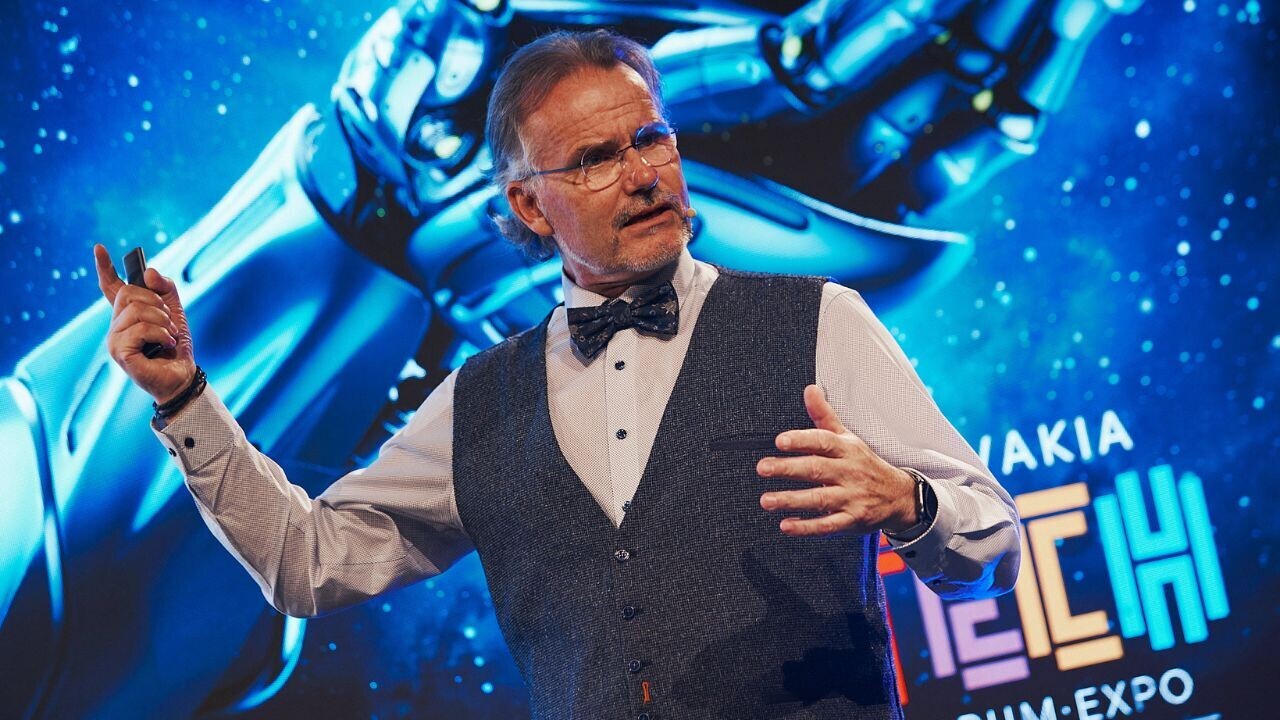Gone are the days when a bean bag and free kombucha made your office cool. Today's top tech talent wants something far more valuable: their health. That's the view of Lucien Engelen, a renowned healthcare innovation expert, who believes workplace wellbeing is about to spark a seismic shift. This transition will not only transform employment perks, but also create a new tech market.
Engelen's vision draws on deep experience. Across three decades in healthcare, his work has spanned acute care, ambulance services, and dispatch centres. As the founding director of the REshape Center of the Radboud University Medical Center, he spent eight years developing and implementing healthcare technologies, grabbing headlines for efforts to integrate patients in their own care and improve service provision with social media.
Today, he focuses on running Transform.Health, which assists organisations such as Vodafone, Erasmus University Medical Center, Deloitte, and Sanofi in their healthcare strategies. He also delivers 100 keynotes a year across the globe about the subject.
These roles revealed a fundamental flaw in conventional treatment. “We've built a sick care system, not a healthcare system,” he says.
Engelen compares the problem to bad plumbing. “We wait until water gushes out of the wall before fixing the leak, instead of turning off the tap.”
For Engelen, the fix is obvious. We need to shift the focus from treating illnesses to preventing them. And employers have a crucial role to play.
At TNW Conference on June 19, Engelen will share his vision in full during a talk titled “CODE RED: Why the Future of Work is the Future of Health.” Ahead of the event, he shared a glimpse of what to expect.
Employers as catalysts for wellbeing
The business case for staff wellbeing is obvious: healthier employees deliver higher performance. Illness, stress, and long waits for medical care drain their productivity and availability.
“If it takes eight weeks to get a consultation, that's eight weeks of lower productivity,” Engelen notes. “And if they leave due to poor health, replacing them can cost about €40,000 in rehiring and training someone to reach the same level.”
To stay ahead, forward-thinking employers are getting proactive. Instead of waiting for health problems to arise, they're offering services that can prevent them.
Technology is rapidly expanding the possibilities. From digital wellbeing apps and fitness trackers to online therapy, these perks are becoming a competitive advantage in attracting elite workers.
As Engelen says, “We're all fishing in the same bucket of talent.”
To attract that talent, he urges employers to apply a broader concept of wellbeing. “It's not only about your physical health. There's also your mental health, and even your social health and financial health.”
Gradually, this holistic model is shaping modern workplaces.
The next generation
For employers, mental health services have become a growing focus — and with good reason. Deloitte research found that UK organisations investing in mental health support see an average return of five to one.
The benefits could be especially impactful for younger workers. A recent study by PwC found that almost four in 10 Gen Z employees in the UK have seriously considered leaving their jobs in the last year, with mental health “a major driver.”
Digital services offer promising solutions. Yet they also introduce new challenges.
“The same Gen Z that is willing to step down due to mental health concerns also thinks privacy is very important — for the right reasons,” Engelen says. “The challenge now for companies is offering solutions without sacrificing their privacy.”
Engelen sees employers addressing this by offering third-party services that staff can use confidentially, away from the prying eyes of bosses or colleagues. For instance, they're providing anonymised access to online mental health services and fitness apps connected to gyms outside the company — with no data flowing back to the business.
This growing focus on employee wellbeing also has powerful potential for tech firms. Engelen envisions a new market emerging for them.
“We'll see an increase in Big Tech closing big contracts with big corporates,” he says.
“We will also see Big Tech acquiring more startups in this sector than ever before, because they can not only get this technology scaled, but also access a market that is willing to pay for it. Now that employers see the real financial benefit of this, it is going to create a new revenue stream.”
For tech companies, this is a lucrative opportunity. The same is true for employers.
The future of wellbeing in the workplace
The benefits of healthy workplaces are well-established. Researchers have found that the ROI on employee wellness programs can be six to one.
“Employers are realising that investing in prevention is far cheaper than paying for treatment or replacing talent — and can also attract talent,” Engelen explains.
Accessibility to digital wellbeing is also set to increase. Integration layers are connecting more and more healthcare apps, creating new approaches to medical care. The EU, meanwhile, recently ratified the European Health Data Space regulation, which will enforce mandatory access to medical records on users' smartphones.
As the technology progresses and enters the workplace, the ripple effects could improve lives and productivity, while alleviating pressure on overburdened health systems.
By embracing wellbeing tech, Engelen believes employers can accelerate a shift from reactive healthcare to proactive prevention.
“The technology is already there,” he says. “What's changing is how we're using it. Employers have realised that investing in health and wellbeing is not just good for their people — it's good for business.”
Lucien Engelen will be among the standout speakers at TNW Conference, which takes place on June 19-20 in Amsterdam. Tickets for the event are now on sale. Use the code TNWXMEDIA2025 at the checkout to get 30% off the price tag.
